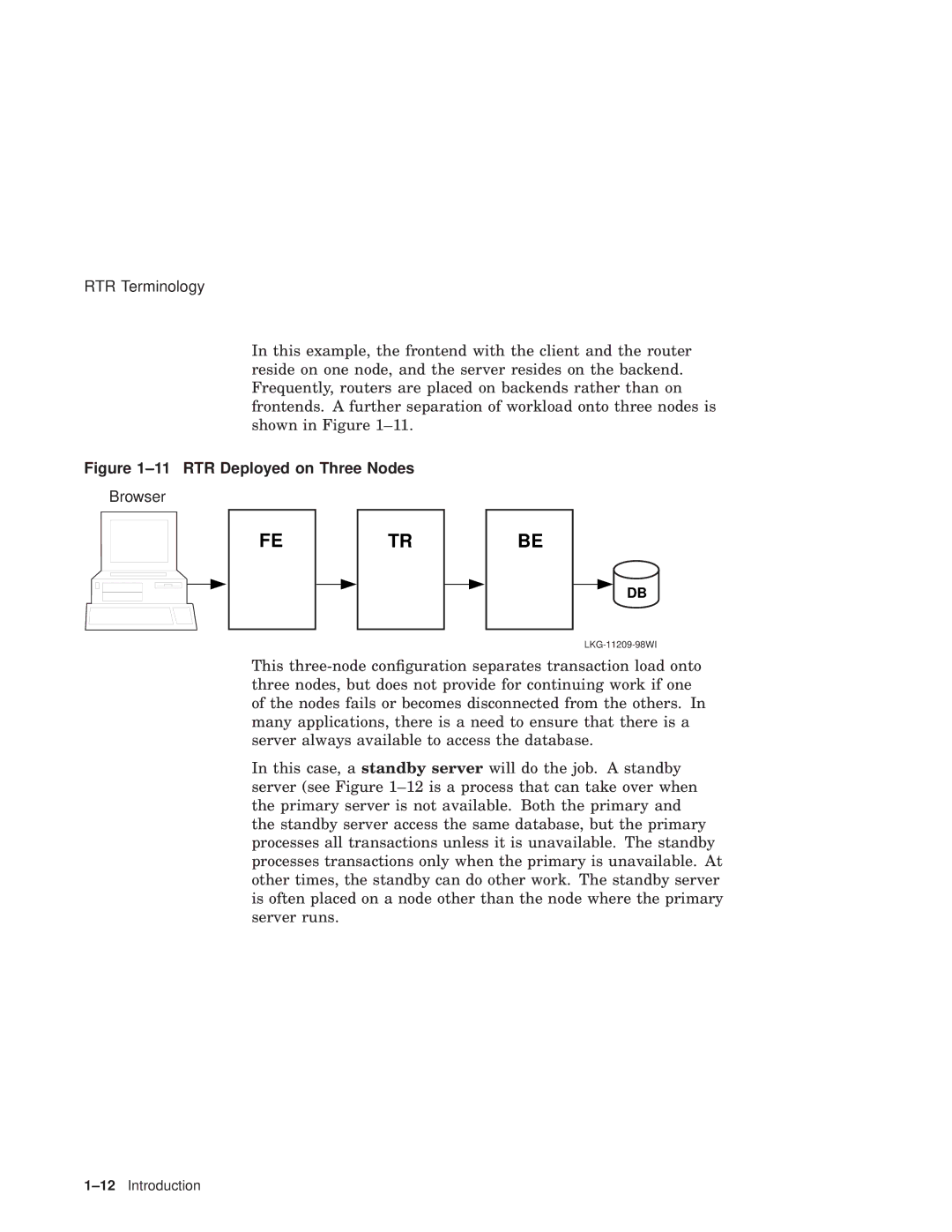RTR Terminology
In this example, the frontend with the client and the router reside on one node, and the server resides on the backend. Frequently, routers are placed on backends rather than on frontends. A further separation of workload onto three nodes is shown in Figure 1–11.
Figure 1–11 RTR Deployed on Three Nodes
Browser
This three-node configuration separates transaction load onto three nodes, but does not provide for continuing work if one of the nodes fails or becomes disconnected from the others. In many applications, there is a need to ensure that there is a server always available to access the database.
In this case, a standby server will do the job. A standby server (see Figure 1–12 is a process that can take over when the primary server is not available. Both the primary and the standby server access the same database, but the primary processes all transactions unless it is unavailable. The standby processes transactions only when the primary is unavailable. At other times, the standby can do other work. The standby server is often placed on a node other than the node where the primary server runs.

